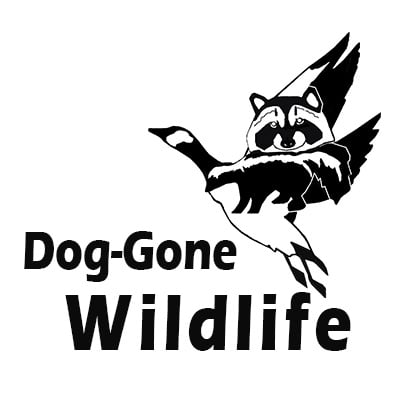Squirrels, while seemingly harmless, can cause significant issues for both homeowners and businesses when they become pests. These agile rodents can chew through wiring, damage insulation, and even cause structural damage by nesting in attics, walls, and crawlspaces. In gardens and commercial properties, they can wreak havoc on plants and landscaping, not to mention the noise they create. For those seeking a humane and effective way to control squirrel populations, trained dogs offer an innovative and natural solution.
The Problem with Squirrels
Squirrels are notorious for their ability to find ways into homes and commercial buildings. Common issues they cause include:
Damage to Property
Squirrels chew through various materials, including wood, plastic, and wiring. This can lead to costly repairs, and in some cases, pose fire hazards due to damaged electrical wiring.
Nest Building in Homes
Once inside, squirrels may nest in attics or walls, bringing debris that can block ventilation and air ducts, reducing air quality.
Noise and Disturbances
Squirrel activity, especially in attics or walls, can create significant noise as they scurry around or chew materials.
Garden and Landscaping Destruction
Squirrels are also known to dig up gardens, damage plants, and disturb landscaping, which can be frustrating for homeowners and businesses trying to maintain attractive outdoor spaces.
How Dogs Can Help
Using trained dogs to combat squirrel issues offers a humane and highly effective way to manage these persistent pests. Here’s how dogs can assist with squirrel control:
1. Natural Deterrent
Squirrels view dogs as natural predators. When a trained dog is present on a property, it instills fear in the squirrels, causing them to avoid the area. Dogs are instinctively motivated to chase small animals, and even the scent of a dog can be enough to keep squirrels away from homes and gardens.
2. Proactive Patrols
Trained dogs can be used for regular patrols around a property to prevent squirrels from establishing themselves. In commercial properties with large grounds, such as schools or corporate campuses, dogs can regularly survey the area, ensuring that squirrels do not become comfortable enough to create nests or cause damage.
3. Scent Marking
In addition to physical presence, dogs leave behind their scent, which acts as a lingering deterrent. Squirrels, like many small animals, are highly sensitive to the scent of predators and are likely to avoid areas where a dog’s scent is present. This can be especially beneficial in large open areas like parks, gardens, and business complexes.
4. Quick Response to Infestations
Once squirrels have entered a home or building, removing them can be difficult. Trained dogs, however, are skilled at locating where squirrels are hiding or nesting. This can help professional wildlife removal teams assess the situation more effectively and speed up the process of eviction. Dogs are trained to bark or alert their handler when they detect squirrels, providing valuable assistance in pinpointing entry points and areas of activity.
5. Humane Solution
One of the main advantages of using dogs for squirrel control is that it is a humane approach. The goal is not to harm the squirrels but to encourage them to relocate naturally. This method ensures that the property remains free from the damages associated with squirrels without resorting to lethal traps or harmful chemicals.
Case Study: Dog Gone Wildlife and Squirrel Control
Dog Gone Wildlife uses highly trained dogs to assist in wildlife management, including squirrel control. Our dogs are trained to handle various wildlife encounters, ensuring a safe and effective solution. Through regular patrols and scent marking, they help homeowners and businesses maintain squirrel-free properties while avoiding the need for harmful traps or toxic deterrents.
Prevention and Long-Term Management
In addition to using trained dogs, it’s important to implement preventative measures to keep squirrels from returning. Some steps homeowners and businesses can take include:
Sealing Entry Points
Ensure that potential entry points into the home or building, such as cracks in the foundation or gaps in the roofline, are sealed.
Tree Trimming
Squirrels often gain access to buildings by jumping from nearby trees. Keeping trees trimmed and at a distance from structures can help reduce access points.
Squirrel-Proofing Gardens
Install protective barriers, such as mesh or netting, to prevent squirrels from digging in gardens or damaging plants.
Squirrels may seem cute, but their presence in homes and businesses can lead to costly damage and constant disruptions. Trained dogs provide a natural and humane way to deter squirrels, helping property owners maintain control without resorting to harmful methods. By combining professional dog services with preventive measures, homeowners and businesses can enjoy squirrel-free spaces and peace of mind.
For more information on our humane wildlife control and how trained dogs can help with squirrel management, contact Dog Gone Wildlife today.

